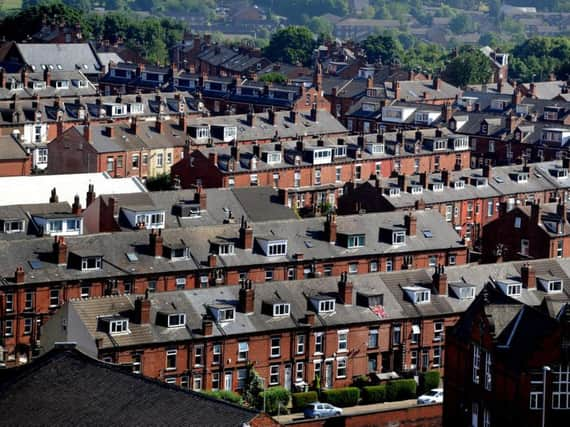Why Leeds City Council thinks Housing First is right for city's homeless people


However, as the YEP continues its special series on the issue, Leeds City Council’s head of housing support, Rob McCartney, talks straight about what needs to be done to tackle a problem which so visibly impacts the area.
Mr McCartney is sure the council’s new way of helping rough sleepers – Housing First, which offers people a refurbished, permanent place to live – is the best thing to do and is also cost-effective.
Advertisement
Hide AdAdvertisement
Hide Ad“It’s an acknowledgement from the council that the old way of doing it and the way most local authorities did things...was not working,” Mr McCartney said.
Reader poll: Would you know where to find help if you were at risk of becoming homeless?The new model – pioneered in Finland, the only country in the EU where the number of homeless people is on the decline – means that council housing or private rental homes in Leeds are fitted with essentials to support rough sleepers to move quickly from the streets into their own tenancy.
As Housing First England says, it “is a different model because it provides housing ‘first’, as a matter of right, rather than ‘last’ or as a reward,” and pilot schemes have taken place in cities such as Manchester.
What is new is that rough sleepers do not need to go into supported temporary accommodation before they are permanently rehoused, and the council help them to bid for a home and move in.
Advertisement
Hide AdAdvertisement
Hide AdSo far, 97 people have moved into 70 council houses and 27 private rented tenancies since the concept was adopted in Leeds in August last year.
People often do not want to go to hostels because of past bad experiences and a communal aspect they do not want to face.
Mr McCartney said: “There was a never-ending cycle of: we have found the people on the street, and the best we could offer them was a hostel, they would say no or have problems and would end up back on the street.”
He gave the example of one ex-policeman in his 60s who was frightened to stay in a hostel.
Advertisement
Hide AdAdvertisement
Hide Ad“The reality is, where there is a group of men living together where there is drink and drugs being used together, things happen,” he said.
Hospitals are often the first point of care for rough sleepers, he said, and Mr McCartney believes the scheme makes financial sense because a hospital bed could cost thousands of pounds, with further costs for police and the courts to deal with those who might commit a crime.
The council yesterday said it has secured £120,000 in funding to pay for furniture and help to assist rough sleepers with Housing First, through which it typically costs £1,500 to set someone up with a home. And having a firm location for service users also allows intensive support workers to visit regularly to maintain the success.
Mr McCartney added: “No matter how many cases that go wrong we aren’t going to stop. There are two or three people who have been rehoused then they have sold all the furniture.
Advertisement
Hide AdAdvertisement
Hide Ad“Is that a reason to stop doing it? No. Because the other [however many] are rehoused.
“One person set fire to their bed. That’s not a reason not to do it.”
Televisions and books can be purchased to stave off boredom and loneliness for new tenants and keep them away from bad habits.
Clothes and bus passes can also be bought for people in order to help them fit back into society and promote the chance of them finding work.
“If they don’t look like rough sleepers it’s more likely they are going to get integrated,” Mr McCartney said.
“Whatever it takes in order to make the difference.”